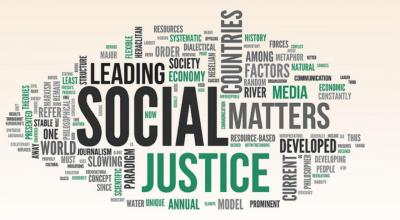
History, we know, is cyclical but this particular cycle seems unprecedented in its turmoil. Voices from the past have a lot to teach us about appropriate and constructive ways to react to injustice. Below are iconic quotes that both inspire and instruct. Click on the author’s name for a link to additional information.
“Those who cannot remember the past are condemned to repeat it.”
George Santanyana, Spanish and American philosopher and essayist (December 16, 1863-September 26, 1952)
“The only thing necessary for the triumph of evil is for good men to do nothing.” Edmund Burke, Ango-Irish statesman and philosopher (January 12, 1729-July 9, 1797)
“Injustice anywhere is a threat to justice everywhere…Whatever affects one directly, affects all indirectly.” Martin Luther King, Minister and civil rights leader (January 15. 1929-April 4, 1968)
“First they came for the socialists, and I did not speak out – because I was not a socialist. Then they came for the trade unionists, and I did not speak out – because I was not a trade unionist. Then they came for the Jews, and I did not speak out – because I was not a Jew. Then they came for me – and there was no one left to speak out for me.” Martin Niemoller, German theologian and Lutheran pastor (1892-1984)
“People, I just want to say, can’t we all get along?” Rodney King, American construction worker, writer and political activist (April 2,1965-June 17, 2012)
Check out our relevant and inspiring books; click on the title to be taken to link.
To Kill A Mockingbird, by Harper Lee. Voted America’s Best-Loved Novel in PBS’s The Great American Read, Harper Lee’s Pulitzer Prize-winning masterwork depicts honor and injustice in the deep South—and the heroism of one man in the face of blind and violent hatred.
Stamped: Racism, Antiracism and You, by Jason Reynolds and Ibram X. Kendi. This remarkable reimagining of Dr. Ibram X. Kendi’s National Book Award-winning Stamped from the Beginning reveals the history of racist ideas in America and inspires hope for an antiracist future.
Between the World and Me, by Ta-Nehisi Coates. Ta-Nehisi Coates offers a powerful new framework for understanding our nation’s history and current crisis. Named one of the most influential books of the decade by CNN, Between the World and Me grapples with our troubled past and seeks ways to free ourselves from its burden.
Biased: Uncovering the Hidden Prejudice That Shapes What We See, Think, and Do,
by Dr. Jennifer Eberhardt. Eberhardt exposes racial bias at all levels of society—in our neighborhoods, schools, workplaces, and criminal justice system. Yet she also offers us tools to address it by demonstrating how we can be vulnerable to bias but not doomed to live under its grip.
An American Marriage, by Tayari Jones. Celestial and Roy, a young African-American couple, are newlyweds whose relationship is put to an unbearable test when Roy is accused of and arrested for a crime he did not commit. Jones’ stirring love story is a profoundly insightful look into the hearts and minds of people who are at once bound and separated by forces beyond their control.
How to be an Antiracist, by Ibram X. Kendi. Kendi weaves an electrifying fabric of ethics, history, law and science and combines it with his own story of awakening to antiracism. This book is essential for those who want to move past the awareness of racism to the eradication of racism and the creation of just and equitable society.
The Color of Law: A Forgotten History of How our Government Segregated America, by Richard Rothstein. Rothstein’s groundbreaking The Color of Law explodes the myth of de facto segregation arising from private prejudice or the unintended consequences of economic forces. This work forces us to confront and remedy our unconstitutional past.
The New Jim Crow, by Michelle Alexander. Praised by Harvard Law professor Lani Guinier as “brave and bold,” this book directly challenges the notion that the election of Barack Obama signaled a new era of colorblindness. With dazzling candor, legal scholar Michelle Alexander argues that “we have not ended racial caste in America; we have merely redesigned it.” This new edition, with a foreword by Cornel West, is a must-read for all people of conscience.